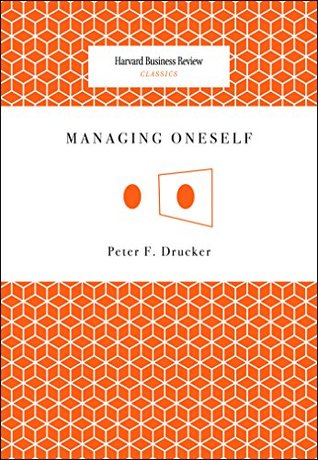More on this book
Community
Kindle Notes & Highlights
And we will have to stay mentally alert and engaged during a 50-year working life, which means knowing how and when to change the work we do.
One cannot build performance on weaknesses, let alone on
something one cannot do at all.
We need to know our strengths in order to know where we belong.
The only way to discover your strengths is through feedback analysis. Whenever you make a key decision or take a key action, write down what you expect will happen. Nine or 12 months later, compare the actual results with your expectations.
Ignatius
Put yourself where your strengths can produce results.
Mathematicians are born, but everyone can learn trigonometry.
Third, discover where your intellectual arrogance is causing disabling ignorance and overcome it.
contem...
This highlight has been truncated due to consecutive passage length restrictions.
inhibit
Like so many brilliant people, he believes that ideas move mountains. But bulldozers move mountains; ideas show where the bulldozers should go to work.
At the same time, feedback will also reveal when the problem is a lack of manners. Manners are the lubricating oil of an organization. It is a law of nature that two moving bodies in contact with each other create friction. This is as true for human beings as it is for inanimate objects. Manners—simple things like saying “please” and “thank you” and knowing a person’s name or asking after her family—enable two people to work together whether they like each other or not. Bright people, especially bright young people, often do not understand this. If analysis shows that someone’s brilliant work
...more
The first thing to know is whether you are a reader or a listener. Far too few people even know that there are readers and listeners and that people are rarely both. Even fewer know which of the two they themselves are. But some examples will show how damaging such ignorance can be. When Dwight Eisenhower was Supreme Commander of the Allied forces in Europe, he was the darling of the press. His press conferences were famous for their style—General Eisenhower showed total command of whatever question he was asked, and he was able to describe a situation and explain a policy in two or three
...more
ridiculed him for butchering the King’s English in incoherent and ungrammatical answers. Eisenhower apparently did not know that he was a reader, not a listener. When he was Supreme Commander in Europe, his aides made sure that every question from the press was presented in writing at least half an hour before a conference was to begin. And then Eisenhower was in total command. When he became president, he succeeded two listeners, Franklin D. Roosevelt and Harry Truman. Both men knew themselves to be listeners and both enjoyed free-for-all press conferences. Eisenhower may have felt that he
...more
“Do you act on this knowledge?” few answer yes. And yet, acting on this knowledge is the key to performance; or rather, not acting on this knowledge condemns one to nonperformance.
Yet when he was proposed for an independent command, General George Marshall, the U.S. chief of staff—and probably the most successful picker of men in U.S. history—said, “Patton is the best subordinate the American army has ever produced, but he would be the worst commander.”
Strong decision makers often put somebody they trust into the number two spot as their adviser—and in that position the person is outstanding.
To be effective in an organization, a person’s values must be compatible with the organization’s values. They do not need to be the same, but they must be close enough to coexist.


